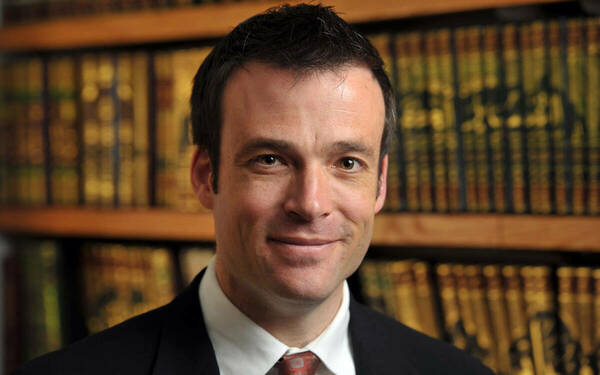

In his latest published work, Gabriel Said Reynolds explores the paradox of divine mercy and divine vengeance—a puzzle with which scholars have long wrestled.
The project, Allah: God in the Qur’an, (Yale University Press, 2020), is among the most recent the Ansari Institute faculty fellow has taken on in his career, which has enabled him to engage with the Bible, the Qur’an, and Muslim-Christian relations in ways that reach both fellow scholars and a broader audience.
“It's an engaged reading of a text from a curious outsider who brings to the table some knowledge of the biblical subtext of the Qur’an,” says Reynolds, the Jerome J. Crowley and Rosaleen G. Crowley Professor of Theology at the University of Notre Dame. “I’m not the first to notice this, obviously—it’s a big issue in the Bible as well—but it comes to the fore in the Qur’an.”
Qur’anic chapters, or suras, begin with an invocation—“in the name of God, the merciful the benevolent”—but at the same time, multiple passages describe God’s vengeance. How might readers reconcile these paradoxical portraits of the divine?
The answer, Reynolds argues, points to the limits of human understanding.
“The short explanation is that the Qur’an is above all interested in emphasizing divine freedom, that God in the Qur’an is not contained by human categories,” Reynolds says. “He’s free to forgive and to judge as he wills.
“If you are convinced by my argument, it means that there are some interesting things that follow from that,” Reynolds says. “One is that the question of whom God can save is wide open. So, God’s mercy cannot be confined and remains a mystery.”
And this mystery, Reynolds says, has important implications for how human beings ought to live.
“My final argument in the epilogue is that, because the Qur’an has this notion of divine freedom and reserves judgment and retribution to God, it’s a sort of call or a message to humans to allow God to be the one who exacts vengeance or judges, and not to take vengeance out of his hands,” Reynolds says. “In that way, the Qur'an is calling for peace and coexistence.”
The work is Reynold’s latest exploration of sacred texts. His previous book, The Qur’an and the Bible: Text and Commentary, provides a reference for how the Qur’an engages with the broader biblical tradition, exploring connections and differences between the texts. He is editing a forthcoming project, a mini-encyclopedia of the Qur’an featuring contributions from more than 40 scholars around the world. This work will feature short entries written for undergraduate and graduate student audiences.
In addition to conducting research, Reynolds offers a variety of classes. Among them is a course on Muslim-Christian relations he co-teaches with fellow Ansari Institute faculty fellow Mun’im Sirry, Assistant Professor of World Religions and the World Church at the University of Notre Dame. The course includes experiential elements such as a visit to a local mosque and enables students to discuss lived religion and engage in dialogue. Another course unpacks the ways in which Judaism, Christianity, and Islam see the Holy Land and its people as an important part of God’s relationship with humanity.
“I really feel called at this stage of my academic career to reach a broader audience, to get beyond the technical language of academics and to touch on issues that are really of interest to the general public.”
Reynolds’ teaching extends beyond the classroom. He serves as an advisor to Reasons for Our Hope, a project by Notre Dame’s McGrath Institute for Church Life and the Oasis Foundation that fosters understanding between Christians and Muslims. More recently, he created Exploring the Qur’an and the Bible, a YouTube channel that features presentations and interviews with top scholars. Discussions offer textual insights and address questions of faith and reason for a wider audience, including people who may not have access to expensive academic textbooks.
“I really feel called at this stage of my academic career to reach a broader audience, to get beyond the technical language of academics and to touch on issues that are really of interest to the general public,” Reynolds says. “It’s a way of showcasing this serious work that’s being done on the Qur’an and the Bible. The beautiful thing about YouTube is that you can reach a global audience.
“There are lots of people engaging from Indonesia, from Turkey, from countries around the world, and I hope in that respect it bridges the gap between the discourse in Islamic and Qur’anic studies in the Islamic world and the developing world, and the discourse that is going on in the West. This is a great way of approaching that conversation.”
Originally published by at ansari.nd.edu on March 02, 2022.